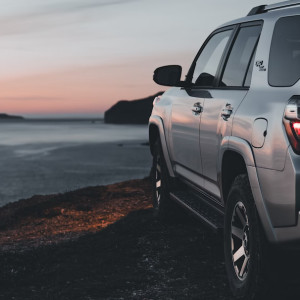When Do Students Need a Truck and Which One Should They Pick?


Most students don't expect to need a truck until life throws a situation their way that a hatchback or rideshare just can't handle. Whether it's moving into a new dorm, transporting large furniture, hauling supplies for a campus event, or even taking a weekend trip into the mountains with half the club's gear, there are moments when extra cargo space becomes a necessity rather than a luxury. These situations can arise with little notice, and without planning ahead, you might find yourself scrambling to borrow a friend's pickup or pay steep last-minute rental fees.
For those who value efficiency in both their studies and logistics, WritePaper do my statistics homework for me can be as essential for academic tasks as a reliable truck is for physical ones. Having the right support (whether it's for moving heavy furniture or structuring an essay) reduces stress and keeps your schedule intact. The lesson is the same: preparedness matters, and having the right tools at the ready can make all the difference when deadlines, be they academic or practical, are closing in.
Times When a Student Might Need a Truck
Life on campus and in off-campus housing often comes with frequent changes in living arrangements.
Many leases align with the academic calendar, so students might be moving every year or even every semester. A truck makes transporting beds, desks, bookshelves, and boxes far easier than trying to coordinate multiple trips in a compact car. Trucks are also valuable for group projects and extracurricular activities.
Theater sets, sports equipment, and musical instruments are not always portable without a spacious vehicle. And if you're part of student organizations that participate in fairs or charity events, hauling tables, tents, and display boards becomes much simpler. For outdoor enthusiasts, a truck can turn a weekend into an adventure.
Camping trips, kayaking excursions, or ski weekends require gear that doesn't fit in a standard trunk. In these cases, students appreciate the freedom to travel without worrying about whether everything will fit.
Picking the Right Truck for Student Life
With so many makes and models available, choosing a truck isn't about picking the most powerful or expensive one. For most students, it's about balancing cost, practicality, and fuel efficiency.
Compact pickups like the Ford Maverick or Toyota Tacoma are popular for a reason: they offer enough cargo capacity for common needs without overwhelming size or poor gas mileage. When renting, look for options that are easy to maneuver and park in crowded college towns. Even if you're confident behind the wheel, navigating a large truck through narrow streets can be stressful.
Students who live on campus should also check parking restrictions since some universities limit oversized vehicles in residential lots.
Features to Consider
When evaluating trucks, consider more than just the bed size. Look at towing capacity if you plan to move trailers, boats, or equipment. Check whether the bed has tie-down points for securing items, especially important for furniture or fragile cargo.
Fuel economy should be on your radar as well. Gas prices fluctuate, and a truck that drains your budget every trip is not a smart choice. Hybrid or smaller-engine models can make a noticeable difference.
Interior space also matters if you're traveling with passengers. Extended cabs give you extra seating without compromising too much cargo room. In cold or wet climates, having a weatherproof cover or tonneau for the truck bed can protect your belongings during transport.
Safety and Insurance
Even if you're borrowing a truck from a friend, confirm that you're covered by insurance.
Accidents, no matter how minor, can create significant financial strain if you're uninsured. Rental companies often provide insurance options, and while they add to the cost, they can save you from far more expensive consequences. If you're new to driving trucks, take time to get comfortable before loading up.
Practice turning, reversing, and parking in a low-traffic area. The higher seating position and extended length change your field of vision compared to a sedan. Some trucks now include backup cameras and lane-assist features that can make handling easier for beginners.
Planning Ahead
The best time to think about truck access is before you actually need one.
If you know you'll be moving or participating in an event that requires transport, book early. Peak times, like the beginning and end of semesters, see high demand for rentals. Early reservations not only secure availability but also give you more choice in vehicle type.
It also helps to have a short list of rental locations or friends willing to lend a truck. This reduces decision-making stress when you're already juggling academic and personal responsibilities. Knowing the pickup and drop-off process in advance keeps you from wasting time figuring it out on the day of your move.
Environmental Considerations
While trucks can be practical, they're not always the most eco-friendly choice.
If sustainability is important to you, consider fuel-efficient or hybrid truck models. Alternatively, combine trips with friends or classmates to reduce emissions and split costs. Some universities and local governments now offer shared cargo vans or trucks as part of green transportation initiatives.
These programs often use newer, more efficient vehicles and may be more affordable for students than traditional rentals.
Conclusion
For most students, owning a truck full-time isn't necessary, but having access to one at the right moment can be a game-changer. From moving dorm furniture to hauling gear for events or adventures, the right vehicle can save time, money, and stress. Pairing that readiness with smart planning, whether in academics or logistics, ensures you're prepared when big tasks come your way.
A truck is simply a tool, but the way you plan and use it determines whether it becomes a burden or a solution.
With careful selection, safe operation, and a little foresight, students can turn occasional transportation challenges into manageable, even enjoyable, experiences.